[ad_1]
Forest sounds and furnishings constructed from storm-stricken bushes convey components of nature into this menswear boutique in London’s King’s Cross, designed by native observe Fred Rigby Studio.
The shop is the fourth outpost from males’s trend model Lestrange and was conceived primarily based on blueprints by biophilic design professional Oliver Heath, combining greenery with reclaimed and pure supplies to forge a higher connection to the outside.
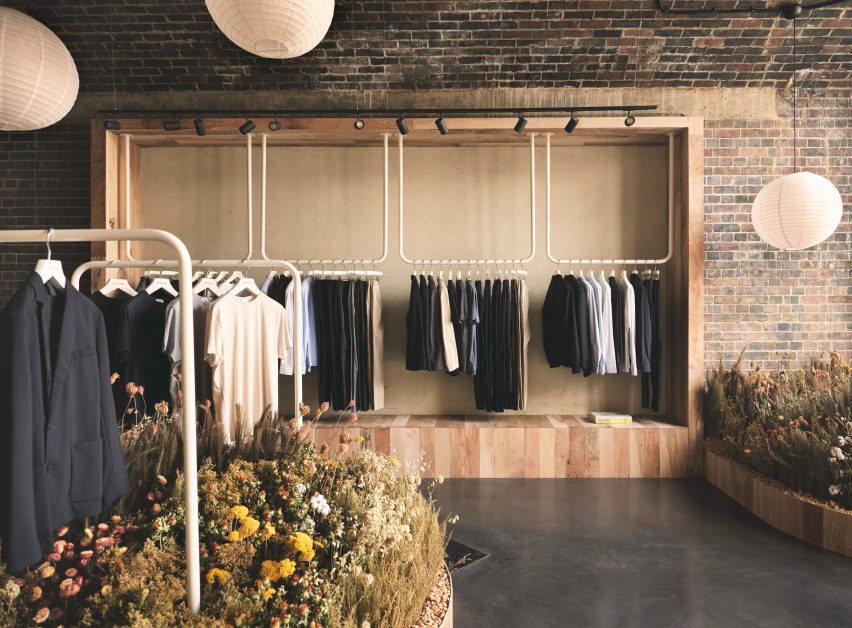
In line with Fred Rigby Studio, this strategy was chosen to replicate the model’s philosophy of utilizing renewable and recycled fibres to supply clothes with longevity.
“We wished to create a way of calm throughout the house, which did not really feel like a generic store however an inside which instructed a narrative behind the clothes and the model’s ethos,” defined the studio’s eponymous founder.
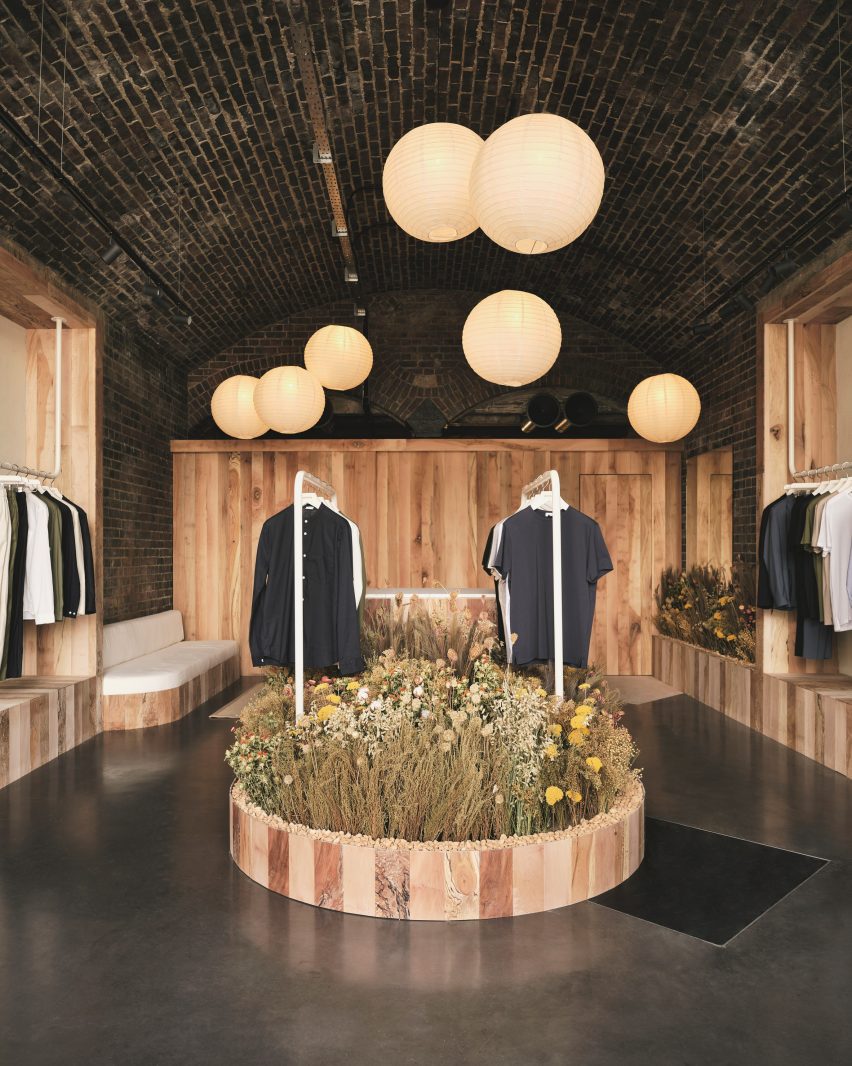
The Lestrange retailer is ready contained in the Thomas Heatherwick-designed Coal Drops Yard purchasing centre, shaped of two transformed warehouses that have been initially constructed within the Victorian period to retailer the huge portions of coal wanted by the capital.
Rigby wished to include this imposing brick construction into his remaining design.
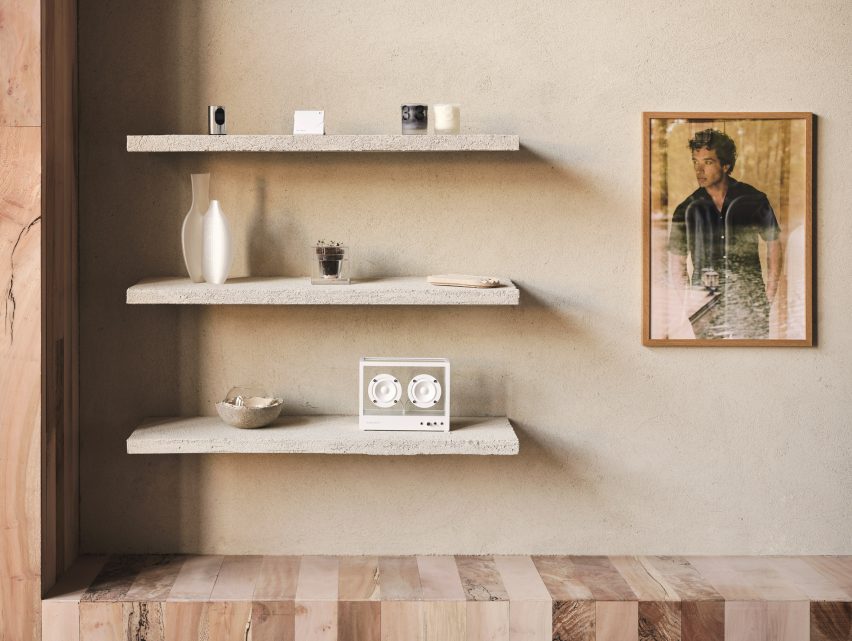
“We did not need to disguise this historical past by protecting it up, which might have additionally entailed utilizing development supplies,” he instructed Dezeen.
“So we celebrated it, breaking the house up utilizing timber partitions and cladding, then including the rice paper lights to present the house a extra intimate really feel.”
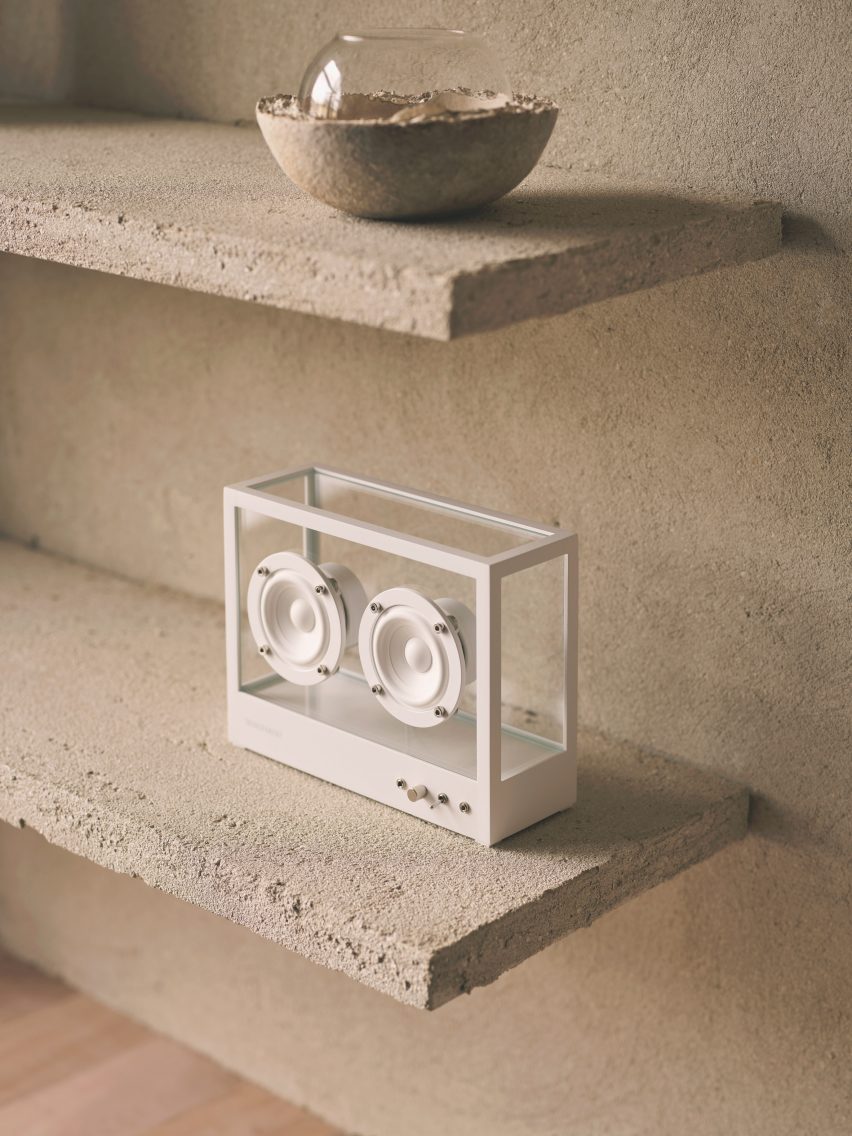
Utilizing the prevailing web site as his canvas, Rigby centered on sourcing a good edit of pure and reclaimed supplies.
“There are many new supplies in the marketplace, however discovering these which might be produced in amount and relevant to business use could be a problem,” he mentioned.
London aircraft timber – harvested from “storm-stricken and diseased bushes” inside just a few miles of King’s Cross – was used to type the partitions that outline the shop’s show and altering areas, in addition to some bespoke furnishings items.
British producer Clayworks blended unfired clays with minerals and pure pigments to create the tactile wall finishes, whereas the terrazzo-style counter tops have been made by Welsh firm Smile Plastics utilizing a mixture of recycled plastics from discarded cell phone casings and chopping boards.
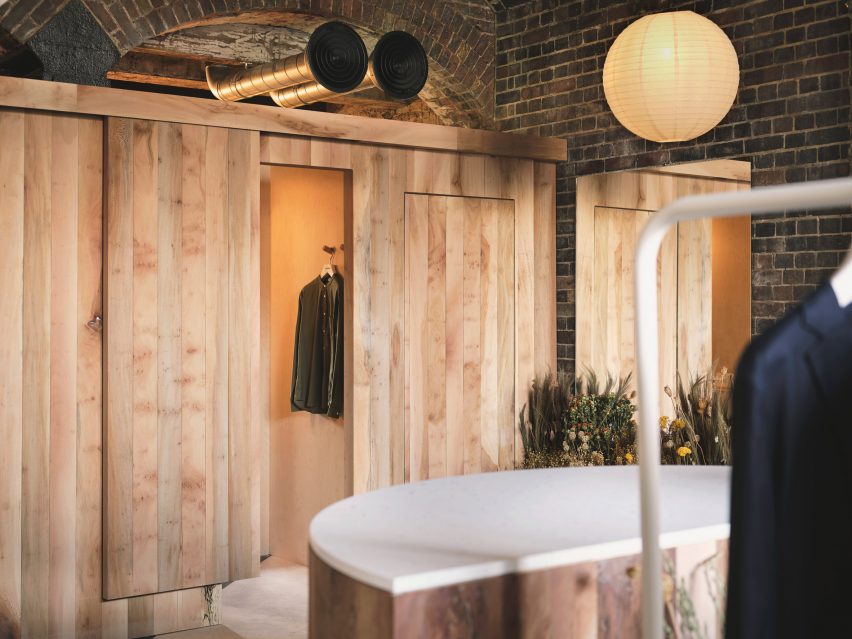
As the last word counterpoint to the mass and severity of the brick, Rigby conceived the concept of an indoor meadow that meanders via the Lestrange retailer.
The association of pure dried flowers and grasses was realised by award-winning backyard designer Lottie Delamain, integrating a rigorously chosen mixture of species to replicate the fibres generally utilized in attire manufacture reminiscent of cotton and flax.
“We wished to convey nature inside, utilizing crops linked to the garments whereas making a contact level to the materiality,” mentioned Rigby.
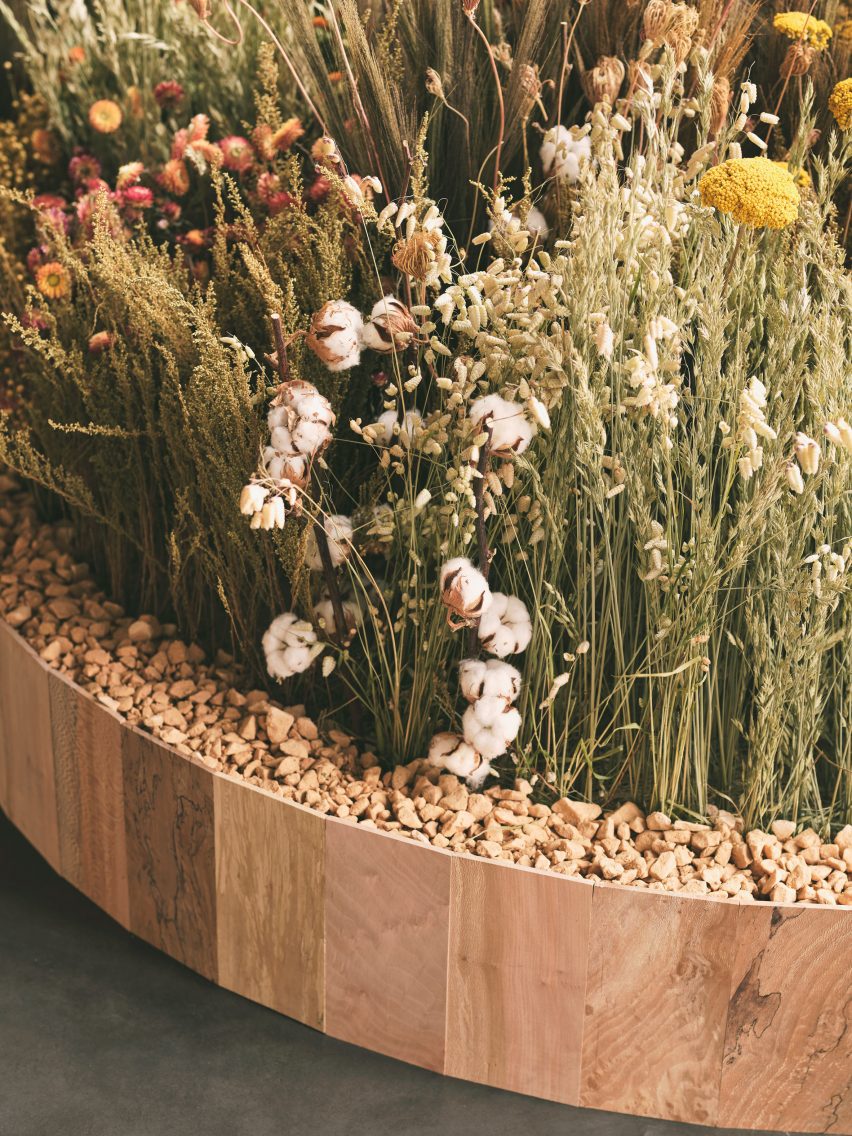
Garments are displayed on easy white steel rails and the capacious open-topped dressing rooms function audio system enjoying forest sounds, complemented by discreet wall lights that solid a refined glow.
There are additionally refined nods to Japanese design within the type of the rice paper lampshades that float at various heights all through the shop.
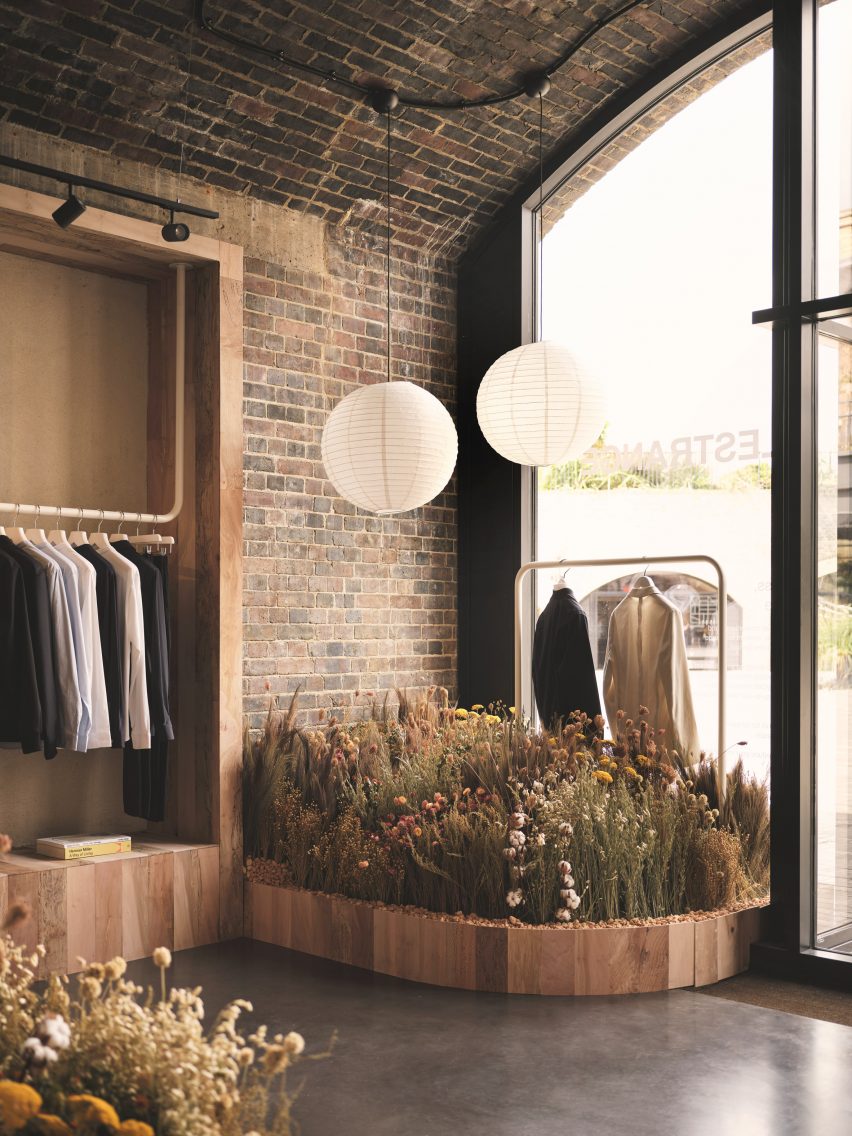
“We began with a combination of preliminary references, one in every of which was a teahouse designed by Charlotte Perriand,” mentioned Rigby.
“We wished to create a material-focused house with nods to pure supplies such because the rice paper lights, which we felt would add to the house and create a way of calm and stillness.”
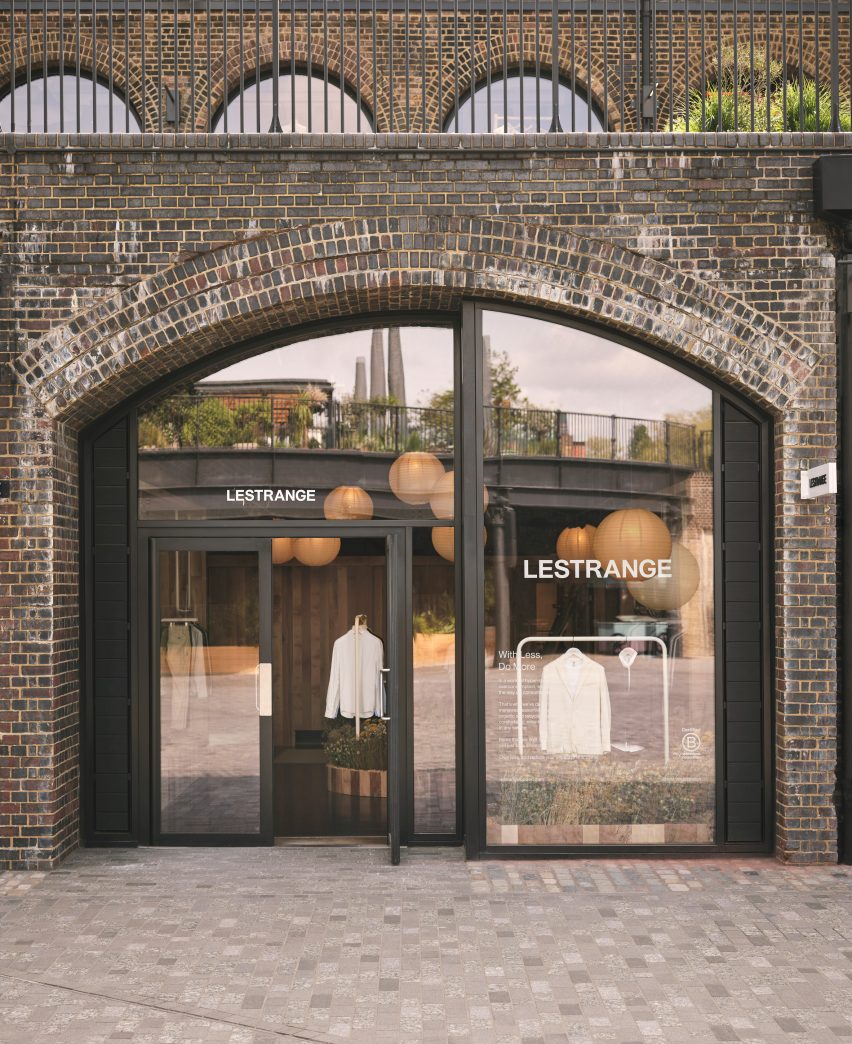
Earlier tasks from Rigby, who based his studio in 2008, embrace bespoke furnishings for a renovated Nineteen Twenties workplace constructing in London in addition to the interiors of Tub’s Francis Gallery, which is ready inside a Georgian townhouse.
The images is by Felix Speller.
[ad_2]
Source link



